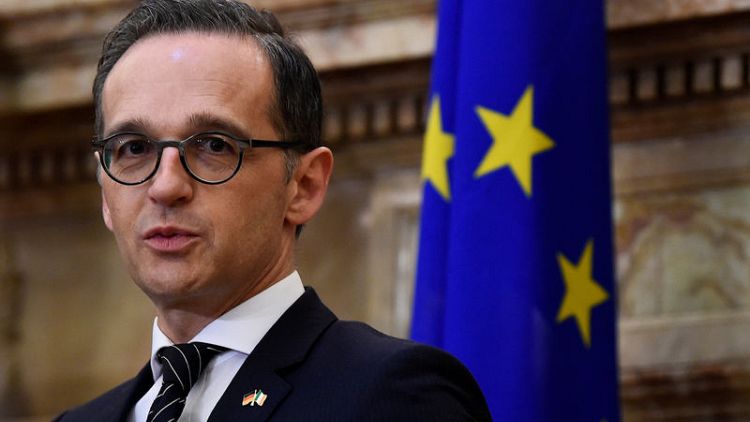By Andrea Shalal
BERLIN (Reuters) - Germany's friendship with the American people will survive the current political differences between the NATO allies, but Germany also has an obligation to speak up for "democracy and freedom", Foreign Minister Heiko Maas said on Tuesday.
German-U.S. ties are at their lowest point for decades following U.S. President Donald Trump's decisions to withdraw from the Iran nuclear deal and other multilateral agreements on climate and human rights, as well as a worsening trade war.
Celebrating the 70th anniversary of the Berlin airlift, Maas said the shipments of food and fuel to war-ravaged West Berlin during the 1948-49 Soviet blockade were a cornerstone of German-American friendship, and Berlin remained eternally grateful.
But the Social Democratic politician, who has been sharply critical of Trump's actions on a host of issues, said on Tuesday that the legacy of the airlift meant Germany and the United States must "work jointly for democracy and freedom".
"We take this responsibility seriously," said Maas, who this month slammed Trump's "one-sided" foreign policy and called for Europe to forge new partnerships.
Germany, Europe's largest economy, and other European Union states have vowed to counter any U.S. move to raise tariffs on cars, while Trump's move to separate immigrant children from their parents prompted a public outcry across the continent.
Eberhard Diepgen, a former mayor of Berlin, warned in an interview with the broadcaster rbb on Tuesday that Trump's recent actions threatened the goodwill towards the United States forged by the airlift.
"The relationship is extremely strained," agreed Jan Techau, director of the Europe programme at the German Marshall Fund, noting that celebrations of the airlift -- by Australian, British, Canadian, French, South African and New Zealand as well as U.S. aircrews -- appeared more muted than in previous years.
"Germany, the rest of Europe, remains extremely dependent on the United States, but that power imbalance has now turned into a deep trench," Techau said. "That's a wholly new situation."
Jeremy Shapiro, director of research at the European Council on Foreign Relations, said German criticism of Trump far exceeded levels seen during other periods of German policy disagreement with Washington, including the 2003 Iraq war.
"It's a big leap for German officials to be able to say this stuff. You definitely wouldn't have seen that a couple of years ago," he said.
U.S. Ambassador Richard Grenell used a ceremony in Frankfurt, the takeoff point for many of the 'candy bombers' that brought supplies to West Berlin, to press for increased German and European defence spending.
Grenell, who was criticised by politicians across the German political spectrum three weeks ago for saying he wanted to empower "other conservatives" in Europe, said Washington was seeking "a stronger Europe, a more prepared Europe and therefore a stronger transatlantic alliance".
(Reporting by Andrea Shalal; Editing by Catherine Evans)
